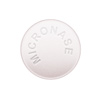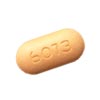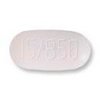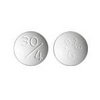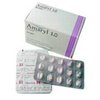INDICATIONS
Micronase (Glyburide) is an oral diabetes medicine that helps control blood sugar levels.
Glyburide is used to treat type 2 diabetes.
This medication is not for treating type 1 diabetes.
Glyburide may also be used for other purposes not listed in this medication guide.
INSTRUCTIONS
Take exactly as prescribed by your doctor. Do not take in larger or smaller amounts or for longer than recommended. Follow the directions on your prescription label. Your doctor may occasionally change your dose to make sure you get the best results.
Take glyburide with your first meal of the day, unless your doctor tells you otherwise.
Your blood sugar will need to be checked often, and you may need other blood tests at your doctor's office. Visit your doctor regularly.
Know the signs of low blood sugar (hypoglycemia) and how to recognize them: headache, hunger, weakness, sweating, tremor, irritability, or trouble concentrating.
Always keep a source of sugar available in case you have symptoms of low blood sugar. Sugar sources include orange juice, glucose gel, candy, or milk. If you have severe hypoglycemia and cannot eat or drink, use an injection of glucagon. Your doctor can give you a prescription for a glucagon emergency injection kit and tell you how to give the injection.
Also watch for signs of blood sugar that is too high (hyperglycemia). These symptoms include increased thirst, increased urination, hunger, dry mouth, fruity breath odor, drowsiness, dry skin, blurred vision, and weight loss.
Check your blood sugar carefully during a time of stress or illness, if you travel, exercise more than usual, drink alcohol, or skip meals. These things can affect your glucose levels and your dose needs may also change.
Your doctor may want you to stop taking glyburide for a short time if you become ill, have a fever or infection, or if you have surgery or a medical emergency.
Ask your doctor how to adjust your glyburide dose if needed. Do not change your medication dose or schedule without your doctor's advice.
If there are any changes in the brand, strength, or type of glyburide you use, your dosage needs may change. Always check your refills to make sure you have received the correct brand and type of medicine prescribed by your doctor.
DOSAGE
Take as prescribed by your doctor.
STORAGE
Store at room temperature, protected from moisture, heat, and light.
MORE INFO:
Active ingredient: Glyburide

